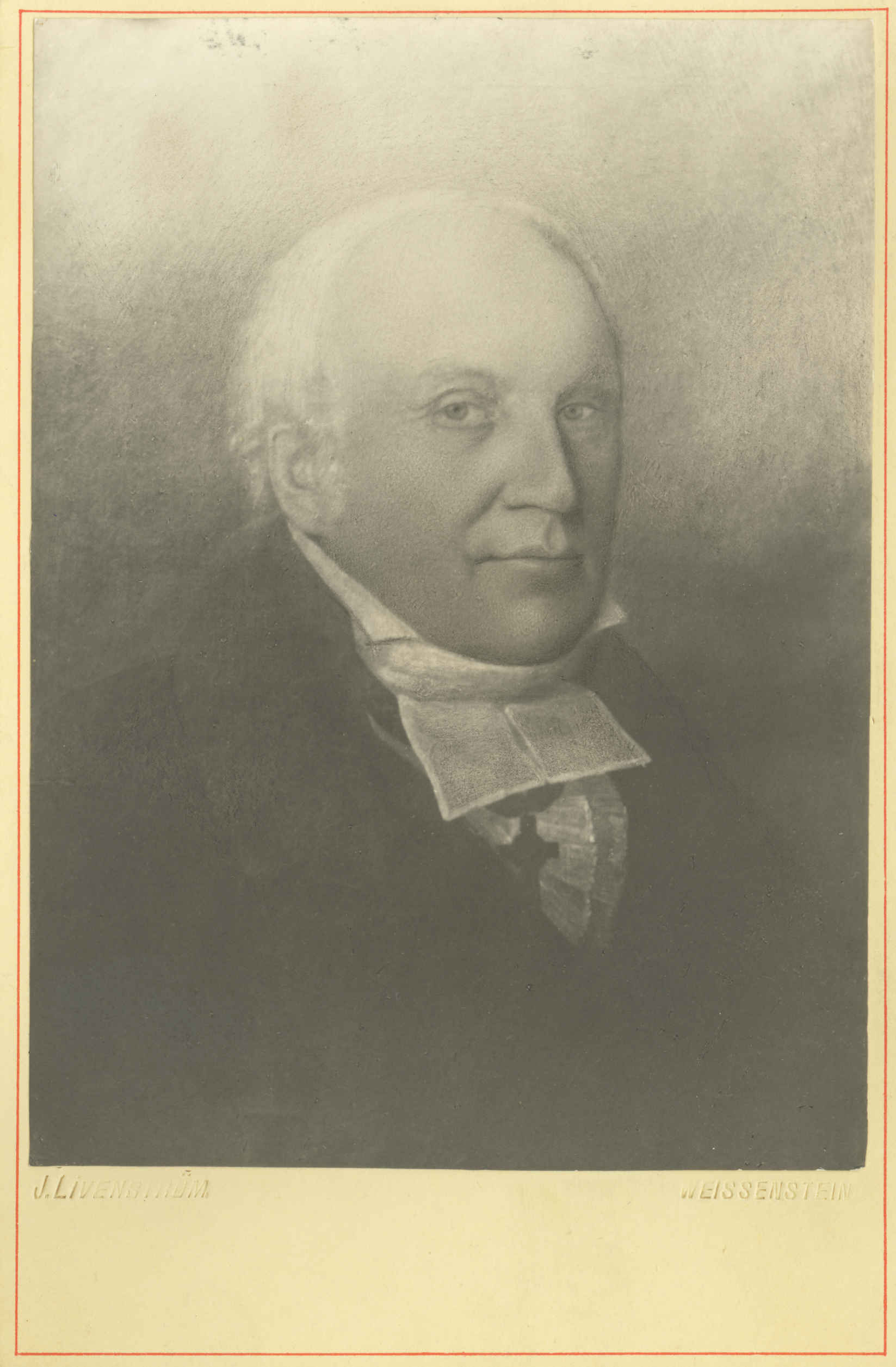
Otto Reinhold von Holtz
Otto Reinhold von Holtz (2.V / 21.IV 1757 – 10.V / 28.IV 1828) was a pastor of German-Swedish origin, a prose writer and a translator of peasant laws.
He was born at Keila. His grandfather was a major in the Swedish army, who was captured by the Russians during the Northern War and thereafter stayed in Estonia. Von Holtz studied theology from 1774 to 1778 at the universities of Greifswald and Tübingen. From 1780 to 1785 he was assistant pastor of Keila, after his father’s death pastor of Keila from 1785 to 1828. From 1788 he was a member of the Consistory of Estonia, from 1800 dean of Harjumaa county. He died at Keila, and is buried beside Keila church.
Von Holtz is primarily known in Estonian cultural history for his collection of stories Luggemissed Eestima Tallorahwa Moistusse ja Süddame Juhhatamiseks (Readings for the Guidance of the Understanding and Heart of Estonian Peasants, 1817). As was the custom at the time, it was in various genres, containing, apart from stories and poetry, fables and riddles. Unlike most other literary figures of Estonian popular enlightenment of the time, who tended toward rationalism and emphasised practical virtues in their works, Holtz represented the new pietism and exhorted the peasantry primarily toward piety, the fear of God and submission to the power of the Tsar and the landowners. Von Holtz expounded his own pietistic views in a collection of religious-philosophical musings, Leuchtpunkte auf dem Wege durchs Leben zum Leben. Ein Spiegel für den inwendigen Menschen (‘Points of Light Along the Way Through Life to Living: A Mirror for the Inner Man’, 1828). At the same time, the good quality of the Estonian language and style in Holtz’ stories is notable, compared with earlier Estonian books of stories. His best known story has proved to be one in the above-mentioned collection, Jut on se Koroke, Õppetus on se Iwa (‘The Story is the Shell, the Teaching is the Seed), the ‘shell and seed’ of which are still a turn of phrase even today. For example, an educational journal called Kooruke ja Iva appeared from 1997 to 2004.
Von Holtz also wrote and published poems in Estonian, as well as translating German poets, including Schiller. He also translated into Estonian two medical books by Justus Samuel Walther: Lühhikenne Öppetus nende abiks, kes näitawad surnud ollewa, ja ommeti weel ellawad (‘A Short Teaching for Those Who Seem to be Dead But Are Alive Nevertheless’, 1811) and Lühhikenne Öppetus Eestima Tallorahwa Ämmadele (‘A Short Teaching for the Midwives of the Estonian Peasantry’, 1812).
Von Holtz also translated several peasant laws into Estonian, which to some extent improved the social and economic position of Estonian serfs at the beginning of the 19th century; these included the regulation Iggaüks (‘Everyone’, 1802) and the law on the peasantry of 1819, whereby serfdom was abolished in Estonia. Thus von Holtz is one of the creators of Estonian juridical terminology. The importance of the liberation from serfdom was also emphasized by von Holtz in his own prose, depicting it as benevolence by the landowners and the Tsar.
In 1819 von Holtz was appointed to the commission on establishing people’s schools in Estonia. He also tried to set up a seminary to train village schoolmasters, but the seminary did not receive a licence. One intending pupil for the seminary was Friedrich Reinhold Kreutzwald, to whom von Holtz taught Estonian from 1819 to 1820 at the Tallinn County School.
S. V. (Translated by C. M.)
Books in Estonian
Luggemissed Eestima Tallorahwa Moistusse ja Süddame Juhhatamisseks. Tallinn: J. H. Gressel, 1817, 216 lk. [Kättesaadav: http://www.digar.ee/id/nlib-digar:100192.]



